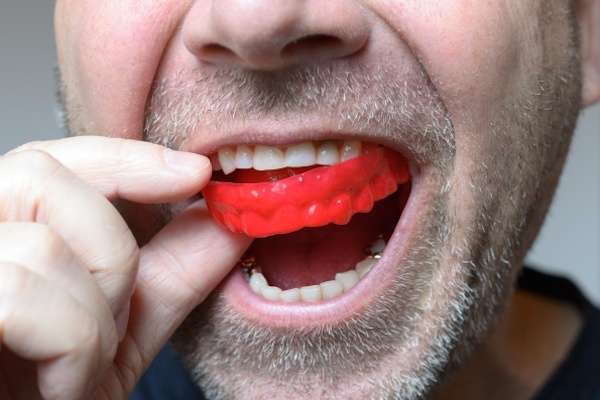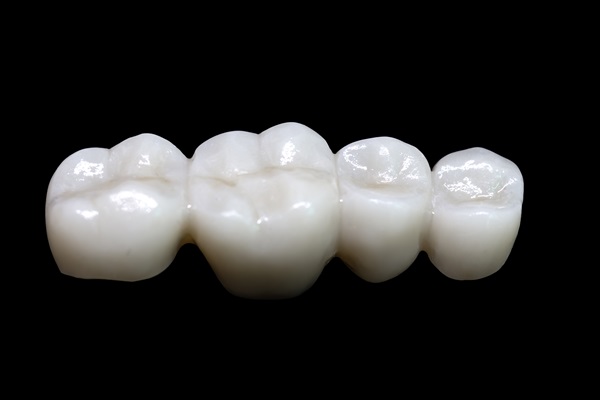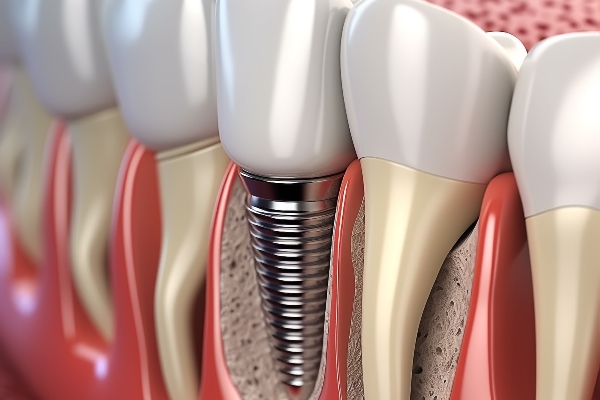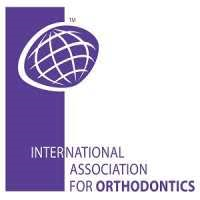 A patient's dentist may recommend custom mouth guards to reduce the effects of bruxism and help prevent long-term tooth damage. Bruxism, or teeth grinding, is a common cause of headaches, jaw pain and similar symptoms. It also can increase a patient's risk for temporomandibular joint (TMJ) syndrome, a condition that may cause jaw joint pain, trouble opening or closing the mouth and difficulty chewing food.
A patient's dentist may recommend custom mouth guards to reduce the effects of bruxism and help prevent long-term tooth damage. Bruxism, or teeth grinding, is a common cause of headaches, jaw pain and similar symptoms. It also can increase a patient's risk for temporomandibular joint (TMJ) syndrome, a condition that may cause jaw joint pain, trouble opening or closing the mouth and difficulty chewing food.
How can patients tell if they need a mouth guard?
While there are conscious steps to take for patients who clench or grind their teeth while awake, those who grind their teeth while asleep may not even be aware that they are doing it. There are several things that can let patients or their dentist know that bruxism is a problem.
Excessive tooth wear
In many cases, a patient's dentist will notice extreme wear on the teeth in a case of bruxism. To prevent further damage and preserve the teeth, the dentist may recommend a custom mouth guard.
Headaches upon waking
Having a headache when waking up is a common sign of bruxism. The prolonged tension resulting from grinding the teeth at night often result in painful headaches.
Pain in the TMJ
The temporomandibular joint (TMJ) often becomes tender to the touch in patients who grind their teeth at night. In some cases, joint pain will be so severe that the patient has trouble open and closing the mouth normally. Bruxism is not the only cause of TMJ pain, but it is a common one.
How does a mouth guard protect the teeth?
Many patients may not think that bruxism is particularly dangerous. However, according to Dentistry Today, bruxism often reaches a force of up to 500 pounds per square inch (psi). This force is many times the force of normal chewing — even biting down on dense, crunchy foods like carrots exerts a force less than 30 psi.
This repeated force can cause damage to the teeth. In some cases, patients with bruxism end up causing severe damage to tooth enamel. Since enamel is the protective layer, patients with bruxism may eventually experience increased sensitivity and even cavities.
Mouth guards provide a layer between the jaws that protects the surfaces of the teeth from further damage. They may not completely stop bruxism, but they do protect the patient's teeth from continually being worn down. Guards designed for night use are custom-fitted by a dentist based on an impression of the patient's teeth. They are usually comfortable and low-profile, and they do not interfere with breathing. Most patients become accustomed to sleeping in mouth guards fairly quickly.
Check out what others are saying about our dental services on Yelp: Mouth Guards in Houston, TX.
Conclusion
For patients who grind their teeth at night or suspect they do, a good first step to dealing with the problem is simply talking to a dentist. The dentist can examine teeth for signs of bruxism. If mouth guards are needed, a custom-fitted option keeps the patient comfortable and reduces the often-painful side effects of teeth grinding.
Request an appointment or call Midtown Dental - The Gallery of Smiles at 713-979-4127 for an appointment in our Houston office.
Recent Posts
A dental bridge is a reliable, effective solution for tooth loss, as it offers functional and aesthetic benefits. This dental restoration helps improve chewing, speech, and overall oral health while maintaining the smile’s natural structure. Patients interested in bridges as tooth replacements can benefit from learning more about their basics, placement process, and long-term care…
Our implant dentist is here to guide you through the process of getting dental implants, from your initial consultation to the surgical installation of your implant. Understanding how the process works allows you to ask the right questions during your appointment.An implant dentist spends a large fraction of their time placing implants. Implants are screws/rods…
Professionals who perform cosmetic dental services know that a confident smile is a universal symbol of health and happiness. Unfortunately, many people experience teeth discoloration and staining over time. This is where teeth whitening, a widely sought-after cosmetic dental service, can help. This review discusses teeth whitening, including the different methods, benefits, and processes and…










